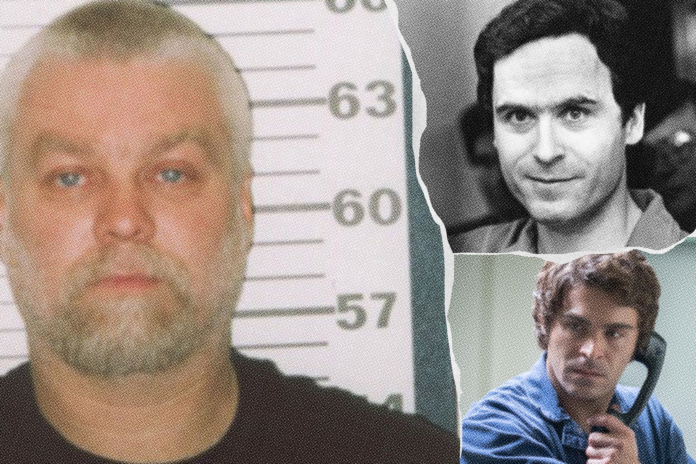Do true crime stories villainize or glamorize killers of the past?
Over the past few years, true crime documentaries and films have been on the rise. From the 2016 FX series “The People v. O. J. Simpson: American Crime Story” to the podcast “Serial” to Netflix’s documentary “Conversations with a Killer: The Ted Bundy Tapes,” there seems to be an emerging fascination with monsters of the past. As new media is produced on this topic however, questions about ethical responsibility rise as well — one must consider the morality of giving these narcissistic killers a resurgence of popularity and whether these new platforms spread their hateful stories.
The recent Netflix film “Extremely Wicked, Shockingly Evil and Vile” explores the mind of ’70s serial killer Ted Bundy. Starring Zac Efron as the notorious killer, the film has been praised for its performances and story, although people have also criticized the tone of the film and the romanticisation of Bundy’s character.
An article in the Washington Post articulates the issues with the writing of Bundy’s character.
“‘Extremely Wicked’ doesn’t glorify Bundy, exactly, but it makes little effort to do the opposite,” writes Sonia Rao. “By primarily focusing on Bundy’s charade instead of his psyche […] [director] Berlinger fails to properly reckon with the brutal crimes Bundy committed.”
Vanity Fair journalist Richard Lawson argues that the film does not justify the retelling and further publication of Bundy’s story.
“At its worse, the movie feels almost sympathetic to Bundy,” Lawson writes. “Its title is taken from a statement read by Judge Edward Cowart (John Malkovich) as he sentenced Bundy to death, a weary speech that also included a sort of rueful wish that Bundy could have employed his smarts and resourcefulness toward something good and productive, as if that’s the real loss, the real shame, here.”
Although Bundy’s name is as infamous as ever, what about the 30 women he murdered? Do viewers of these films and consumers of true crime media know the names of these women?
“As a culture, we’re having more and more conversations about what stories we should tell and how we should tell them,” wrote Huffington Post columnist Maija Kappler. “There are so many kinds of people and experiences we still haven’t seen reflected in our media. If we’re going to re-tell a story that’s so familiar — a powerful man victimizing women — […] there should be a good reason. And frankly, this movie doesn’t seem to have one.”
Meanwhile, an article in Vulture delves into the current fascination with old killers. Writer Tori Telfer concludes modern feats of mass terror and destruction desensitized people to the threat of individual murderers. “We’re scared of other, less knowable monsters these days.” Telfer wrote. She cites documentarian Celene Beth Calderon and Elizabeth Munroe in her article as well.
“‘Our focus has changed, as far as what we’re fearful of,’ says Calderon. She adds that every time she goes to the movies, she looks around, wondering if anyone will open fire. Munro says that she’s less afraid of finding a Bundy-esque stranger in her house than she is of seeing an active shooter at the mall, or at work,” Telfer writes.
The world is in a constant state of unease, making documentaries of old school serial killers more fascinating than frightening for the average viewer. Consumption of these stories is easy and, therefore, rapid. Both producers and consumers of this type media, however, should first contemplate the moral implications.
Written by: Alyssa Ilsley — arts@theaggie.org










